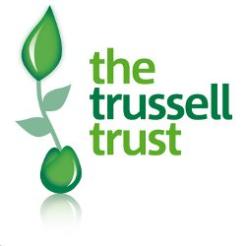Last week the Trussell Trust revealed it was told to temper its criticism or the government might try to shut it down. David Ainsworth says MPs cannot expect to muzzle the sector while stepping up their own criticism.
Our story about the Trussell Trust earlier this week really seems to have hit a nerve in the charity sector. Clearly charities are worried about their right to speak out, and the amount of criticism they take from MPs.
It reveals an extraordinary double standard in Parliament.
Clearly politicians feel they have a right to tell charities what they should be doing with their money. But when charities try to influence what government spends its money on, they’re told it’s not their job, they should stick to their knitting, and increasingly, that it’s against the rules.
Chris Grayling, the justice minister, has been clear that he, personally, feels charities shouldn’t be spending that money on judicial reviews, and therefore they should stop.
MPs such as Charlie Elphicke, Priti Patel and Robert Halfon, three Tories have been members of the Public Administration Select Committee, which scrutinises the regulation of charities, have clearly told us that charities must spend their money on front-line services.
Conor Burns, Tory MP for Bournemouth West, told everyone last week that Oxfam should be spending its money abroad rather campaigning about poverty in the UK. Apparently on the basis that he thought it only worked in foreign countries, and he doesn’t like being surprised.
(The message seems to be that it’s good and right and proper for Oxfam to give food to hungry people in Ethiopia. But it’s not acceptable for the Trussell Trust gives food to hungry people in the UK. Because that means admitting that there are some.)
Yet at the same time the same MPs are demanding, equally loudly, that charities should not try to tell politicians what to do. The Lobbying Act was passed largely to hamstring the ability of charities to make a difference in marginal communities.
And many charities apart from the Trussell Trust have been criticised for speaking out.
You have to be pretty sensitive to criticism to immediately start shouting that it’s against the rules, or throwing your weight around, when someone gives you a bit of stick. Personally I hope that charities realise that if someone is that pissed off, they must have done something right, and keep talking.
The point, though, is that neither group can have it both ways. If you want to dish it out, you have to be prepared to take it.
Charities need to accept that they are part of the public consciousness, and they will rightly face political criticism as a result. MPs were elected to represent the view of the people, and are entitled to speak out if they feel the people are getting a raw deal.
But politicians need to understand that charities, too, represent a constituency, just not a geographical one. They, like MPs, have a right to speak out in defence of that constituency.
If one political party in particular has policies which are bad for their beneficiaries, they must be able to criticise that party without being labelled party political and told to shut up.
In short, Parliament should practice what it preaches. If you want to tell charities what to do with their money, you have to let charities tell you what to do with yours.










